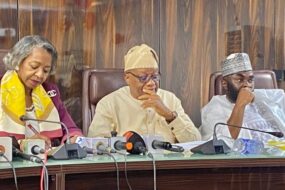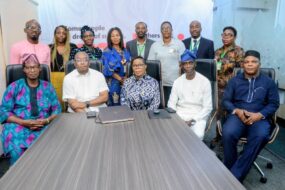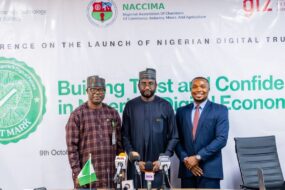
By Arinze D. Okigbo
I was in a Nigerian classroom some years ago, daydreaming about what I would do in college. Nigeria is bursting at the seams with raw talent, great minds, and daunting challenges. It’s the ideal environment for technology to make a difference. And when we talk about change-making technology today, nothing looms larger than Artificial Intelligence.
Now, as a student at an American university, I’m seeing the global AI education push up close. No hype—it’s a race. There are real AI courses in American universities bringing coding, ethics, and applications together. Even in India, AI is now a standard feature in technical education, thanks to proactive government policy. But in Nigeria, it’s a different ball game altogether.
Most Nigerian universities barely mention AI in their curricula. And where they do, it is an introductory course delivered with stale curriculum. Forget about deep machine learning projects—most departments don’t have GPUs, cloud credits, or even a reliable internet. Lecturers are overworked. Infrastructure is dying. So, how do we expect such institutions to teach one of the most resource-intensive fields in modern computing?
I recall the computer science courses I took in Nigeria, which were on obsolete programming languages and esoteric theory. My friends who are still in Nigerian universities tell me that not much has changed. With the rest of the world surging forward with AI-driven systems and niche tools, students are stuck studying obsolete code from many decades ago.
Ironically, Nigeria is already consuming AI-powered tools. AI learning systems or AI tutors are used in some schools. However, these tools assist students only to learn other subjects—these do not teach students how to create or comprehend AI itself. We’re raising a generation of consumers, not creators. It’s like using a calculator every day without ever understanding the mathematics behind it.
I recall learning AI fundamentals from YouTube and online courses, coping with poor internet connections and broken laptops. A few of us were fortunate enough to learn libraries such as TensorFlow and PyTorch independently. For most Nigerian students, however, the digital divide is too broad. It’s only a privileged minority that can even attempt to learn independently.
As I sit here in the U.S., I can see how crippling this will be to Nigeria’s future. We like to refer to ourselves as the giant of Africa and an emerging tech hub. But how do we hope to compete when our universities are graduating students ill-equipped for the biggest tech revolution of our era? While other nations are churning out AI engineers, ethicists, and researchers, we are still holding on to an era that no longer serves us.
The stakes are enormous. Without an AI education ecosystem, we will never have tools created for Nigeria’s unique context—our languages, our healthcare system, or our agricultural climate. We will use LLMs developed elsewhere that will not understand our needs. Worse still, we will continue to lose our best minds to foreign universities. Our top students pursue opportunities abroad, and many never return. We export our best and keep our challenges.
What is required is obvious: an ambitious, national AI policy for Nigerian universities. The National Universities Commission and the Ministry of Education must work together to establish an AI curriculum framework for everyone to adhere to. This cannot be an afterthought. Core competencies, infrastructure requirements, and lecturer training programs must be embedded in every computer science department nationwide.
The public sector must also pursue partnerships with international tech giants, such as Google and Microsoft, as well as local champions like Flutterwave and Paystack. These entities can assist by donating hardware, providing cloud access, and offering hands-on training. This is not charity—it is astute investment in future talent pipelines.
Outside the classrooms, we require innovation hubs, such as national AI hackathons that solve issues unique to Nigeria, government-sponsored research grants, and fellowships that inspire and retain the finest minds. Let us make it desirable to remain, to construct, and to innovate in Nigeria.
Why this needs to occur now is straightforward: the AI revolution is already underway. It’s transforming economies and rewriting the equation for how nations prosper. If we wait, the price of catch-up will be too great, or it may not be feasible at all. We could become perpetual consumers of AI developed elsewhere, stuck on the sidelines in a future in which we ought to be helping shape.
AI education isn’t a technological issue—it’s about survival. It’s an issue of sovereignty, opportunity, and innovation. It’s about positioning Nigeria’s young people to occupy their rightful position, not just fantasize about it. We have the talent. What we need now is the vision—and the will to act before it’s actually too late.
(Arinze D. Okigbo is a computer science major currently interning with a startup addressing emerging cybersecurity challenges in an AI-powered world)
















